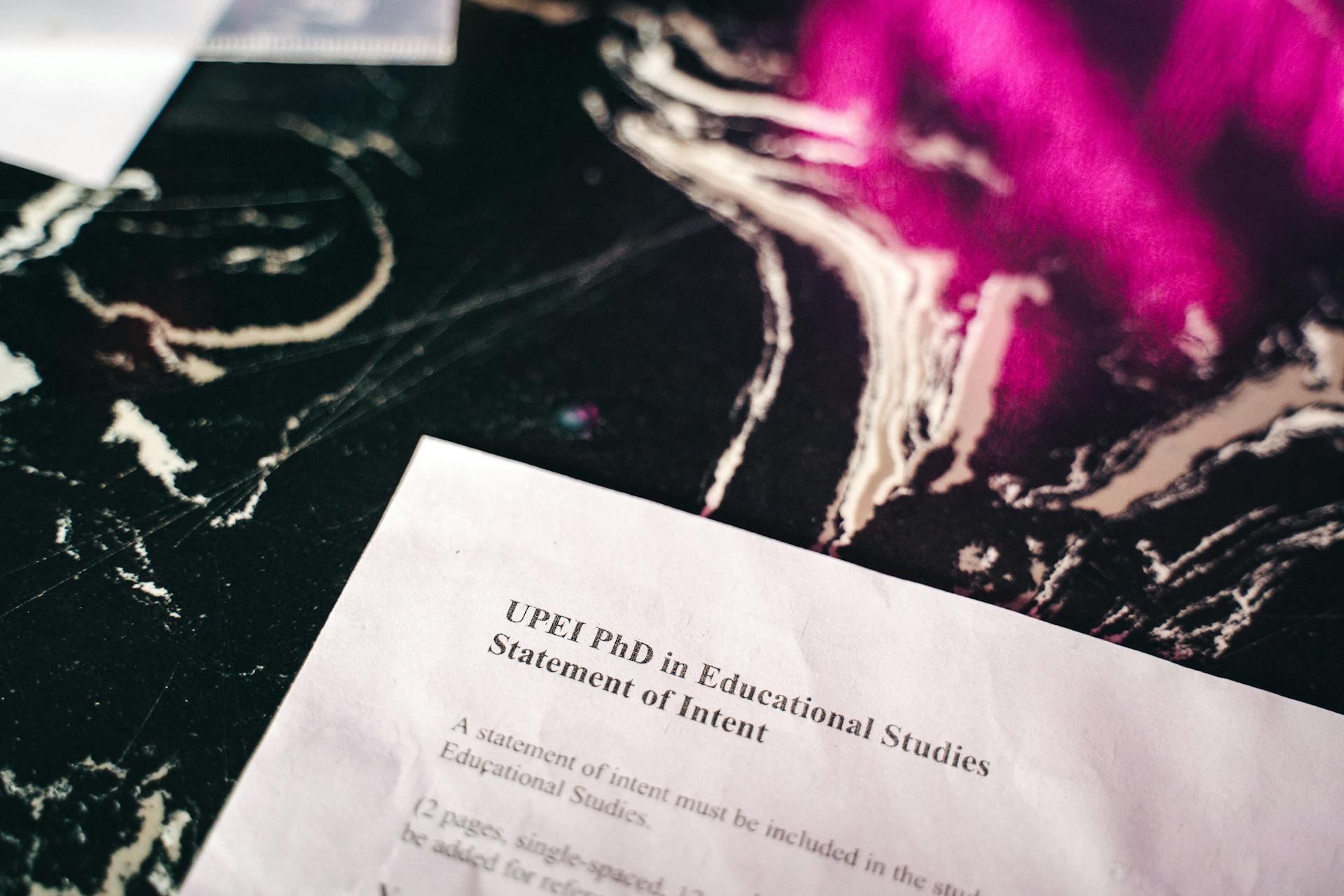In today’s highly competitive academic and professional landscapes, the pursuit of a PhD has become a common goal for many individuals seeking to advance their expertise, contribute to cutting-edge research, and enhance their career prospects. However, for those who hold a Bachelor of Science (BSc) or Higher National Diploma (HND), the journey to a PhD can seem daunting. These individuals often face significant challenges due to the differences in academic qualifications, research experience, and the general expectations for those pursuing doctoral programs.
Despite these obstacles, more and more BSc or HND holders are successfully embarking on PhD journeys, finding ways to bridge the gaps in their qualifications and experience. This article explores the key challenges and opportunities faced by BSc or HND holders in their pursuit of a PhD, offering practical strategies to help them succeed and thrive.
Eligibility and Requirements for Pursuing a PhD with a BSc or HND
Before diving into the challenges and opportunities, it’s important to understand the eligibility and requirements for pursuing a PhD as a BSc or HND holder.
1. Academic Background
In most cases, individuals aiming to pursue a PhD traditionally hold a Master’s degree. However, it is not uncommon for universities to allow candidates with a BSc or HND to apply for a doctoral program, especially if they demonstrate exceptional academic performance and a keen interest in research.
BSc Holders: In many countries, BSc holders are encouraged to apply for PhD programs, though they may be required to complete additional coursework or research training before being fully admitted into a doctoral program. A strong academic record, typically a GPA of 3.5 or higher, is often required.
HND Holders: The situation for HND holders can be a bit more complex. Since HNDs are generally considered to be vocational qualifications, many universities require HND holders to complete further studies (such as a top-up degree or postgraduate diploma) before they are considered eligible for a PhD program. However, in some cases, universities may offer direct entry into a PhD program based on a candidate’s professional experience or specialized research skills.
2. Research Experience
One of the key criteria for PhD candidates is research experience. Since BSc and HND programs generally focus more on the foundational aspects of a subject, many students may lack the in-depth research experience that is typically expected of PhD applicants. This gap can be addressed through various strategies, which we will explore in later sections.
3. English Language Proficiency
If you are applying to a PhD program in an English-speaking country and your first language is not English, most institutions will require proof of English language proficiency. This can be demonstrated through tests such as the IELTS or TOEFL, depending on the university’s specific requirements.
Challenges Faced by BSc or HND Holders
While it is possible to pursue a PhD with a BSc or HND, there are several challenges that candidates may face in this journey.
1. Lack of Research Experience
One of the most significant challenges for BSc and HND holders is the lack of research experience. PhD programs are research-intensive, and many applicants with Master’s degrees have already conducted independent research projects, published papers, or gained research assistant positions. In contrast, those with a BSc or HND may not have had similar opportunities.
2. Limited Academic Background
PhD programs often assume a higher level of academic depth and knowledge in a specific field. Students with a BSc may have a broad understanding of their discipline but might lack the specialized knowledge that a Master’s degree program typically provides. Similarly, HND holders may have a more practical, hands-on background but lack the theoretical grounding needed for advanced research.
3. Competition from Master’s Degree Holders
Applicants with Master’s degrees typically have a competitive edge in the admissions process. These candidates often have more focused academic training and are expected to be well-prepared for the rigors of doctoral research. As a result, BSc and HND holders may face tougher competition, requiring them to stand out through their own academic achievements and research potential.
Opportunities and Benefits of Pursuing a PhD with a BSc or HND
Despite the challenges, there are numerous benefits and opportunities for BSc or HND holders pursuing a PhD.
1. Personal Growth and Development
Pursuing a PhD is an intellectually stimulating journey that challenges you to think critically, solve complex problems, and contribute original knowledge to your field. For BSc or HND holders, it can be an opportunity to broaden your academic horizons, develop a deeper understanding of your discipline, and cultivate valuable research skills that will serve you well in both academic and professional settings.
2. Enhanced Career Prospects
A PhD opens doors to a wide range of career opportunities. Whether in academia, research institutions, government agencies, or industry, a doctoral degree is often viewed as the highest qualification, providing individuals with a distinct advantage in securing leadership or specialized roles. For BSc and HND holders, completing a PhD can significantly enhance their employability, earning potential, and long-term career growth.
3. Contribution to Knowledge and Innovation
A PhD offers an incredible opportunity to contribute to your field through original research. By tackling important, unresolved questions or exploring new avenues of study, you have the potential to make significant contributions to knowledge and innovation. This sense of purpose and the ability to impact the world through research is one of the most rewarding aspects of pursuing a PhD.
Strategies for Success
While the challenges are real, there are several strategies that BSc or HND holders can use to succeed in their PhD pursuits.
1. Building Research Experience
Since research experience is a key factor in PhD admissions, BSc or HND holders should take proactive steps to gain experience before applying. This might include:
Internships or Research Assistantships: Apply for positions that allow you to work alongside experienced researchers or academics. These experiences will help you build the necessary skills and familiarize you with research methodologies.
Independent Projects: If formal research opportunities are not available, consider starting an independent research project. Even a small-scale project that you can showcase in your application will demonstrate your capability to engage in research.
2. Developing a Strong Academic Record
A solid academic foundation is essential when applying for a PhD program. Focus on excelling in your BSc or HND studies, ensuring you maintain a strong GPA. If possible, participate in advanced coursework or certifications that can demonstrate your dedication and commitment to the field.
3. Networking and Collaborations
Networking with academics, researchers, and professionals in your field can significantly enhance your chances of success. Attend conferences, seminars, and workshops where you can meet potential mentors or collaborators. Building relationships within the academic community can open doors for research opportunities, publications, and even PhD program recommendations.
4. Securing Funding and Scholarships
PhD programs can be costly, and funding may be a significant barrier. Research available scholarships, fellowships, and grants that can help cover your tuition fees and living expenses. Many universities offer funding packages for outstanding PhD applicants, so be sure to apply early and explore all available options.
Real-Life Examples and Case Studies
Case Study 1: Sarah, a BSc Graduate
Sarah, a BSc graduate in Biology, had always dreamed of pursuing a PhD. However, she lacked research experience and was concerned about competing with applicants holding Master’s degrees. Determined to succeed, she took on volunteer research assistant positions, built relationships with professors, and published her first paper during her final year. These efforts paid off when she was accepted into a competitive PhD program, despite her lack of a Master’s degree.
Case Study 2: John, an HND Graduate
John, an HND holder in Electrical Engineering, had limited theoretical knowledge of his field. However, he had substantial work experience in the industry. He applied for a PhD in his area of expertise, focusing on industry-related problems. By showcasing his practical knowledge and research potential, John was accepted into a PhD program after completing a top-up degree to strengthen his academic background.
Conclusion and Recommendations
Pursuing a PhD with a BSc or HND can be a challenging yet rewarding journey. While there are obstacles such as limited research experience, competition from Master’s degree holders, and academic gaps, there are also numerous opportunities for personal and professional growth. By developing research skills, building a strong academic record, networking effectively, and seeking out funding opportunities, BSc and HND holders can significantly improve their chances of success.
For those considering this path, my recommendation is to start early. Gain as much research experience as possible, stay persistent, and actively seek advice and mentorship from academics in your field. With dedication, the right strategies, and a proactive approach, you can successfully pursue a PhD and make a significant impact in your field.



